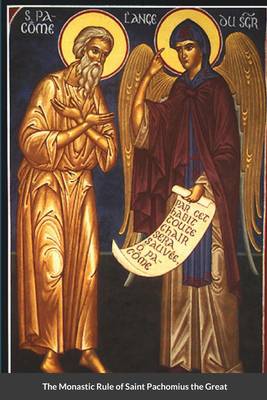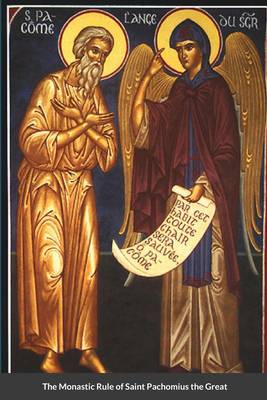
- Afhalen na 1 uur in een winkel met voorraad
- Gratis thuislevering in België vanaf € 30
- Ruim aanbod met 7 miljoen producten
- Afhalen na 1 uur in een winkel met voorraad
- Gratis thuislevering in België vanaf € 30
- Ruim aanbod met 7 miljoen producten
Zoeken
The Monastic Rule of Saint Pachomius the Great
Nun Christina, Anna Skoubourdis, St George Monastery
Paperback | Engels
€ 12,45
+ 24 punten
Omschrijving
Pachomius was the first to set down a written rule] The first rule was composed of prayers generally known and in general use, such as the Lord's Prayer. The monks were to pray them every day. As the community developed, the rules were elaborated with precepts taken from the Bible. He drew up a rule which made things easier for the less proficient, but did not check the most extreme asceticism in the more proficient. The Rule sought to balance prayer with work, the communal life with solitude. The day was organised around the liturgy, with time for manual work and devotional reading. Fasts and work were apportioned according to the individual's strength. Each monk received the same food and clothing. Common meals were provided, but those who wished to absent themselves from them were encouraged to do so, and bread, salt, and water were placed in their cells. In the Pachomian monasteries it was left very much to the individual taste of each monk to fix the order of life for himself. Thus the hours for meals and the extent of his fasting were settled by him alone, he might eat with the others in common or have bread and salt provided in his own cell every day or every second day. Basil the Great and Benedict of Nursia adapted and incorporated parts of it in their rules.
Specificaties
Betrokkenen
- Auteur(s):
- Uitgeverij:
Inhoud
- Aantal bladzijden:
- 44
- Taal:
- Engels
Eigenschappen
- Productcode (EAN):
- 9781257771417
- Verschijningsdatum:
- 22/07/2021
- Uitvoering:
- Paperback
- Formaat:
- Trade paperback (VS)
- Afmetingen:
- 152 mm x 229 mm
- Gewicht:
- 72 g

Alleen bij Standaard Boekhandel
+ 24 punten op je klantenkaart van Standaard Boekhandel
Beoordelingen
We publiceren alleen reviews die voldoen aan de voorwaarden voor reviews. Bekijk onze voorwaarden voor reviews.











